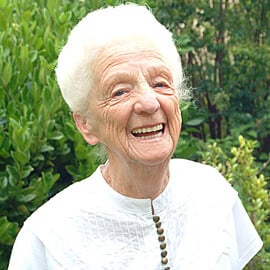Keeping Your Fitness as You Age - physical inactivity is responsible for up to nine percent of the total years of life lost through premature death from heart disease, colon cancer, stroke and diabetes. Astonishingly, 85 percent of those over 55 don't exercise regularly. Yet, exercise is absolutely essentially to preserve our health, mobility and general wellbeing.
Physical inactivity is responsible for up to nine percent of the total years of life lost through premature death from heart disease, colon cancer, stroke and diabetes. Astonishingly, 85 percent of those over 55 don't exercise regularly. Yet, exercise is absolutely essentially to preserve our health, mobility and general wellbeing.
Realistically, we can't just take up jogging or soccer or even cycling overnight - but we don't have to. All we need is moderate regular exercise, the easiest and cheapest being 40 minutes walking, three to four times a week. It can even be done in 10 minute sessions.
Whilst ageing is characterised by a steady decline of function of the various body systems, exercise can dramatically reduce this functional decline. Aches and pains together with the increase of disease conditions were once considered part of ‘getting old.' They don't have to be.
With exercise the heart muscle strengthens, which allows the heart to pump a larger volume of blood with each beat. This helps to reduce your resting blood pressure.
Regular aerobic exercise - that is exercise that can be carried out continuously at a sustained rate - increases the capacity of the lungs. This can be brisk walking, swimming or even dancing. If your lungs are ageing but regularly exercised, they will retain their oxygen function.
By strengthening your large muscle groups, (legs, back) you improve your ability to perform in reflex contractions and muscle endurance.
Weight bearing exercise (like walking, or a weights program) helps you keep bones strong and reduces the risk of Osteoporosis. Improving bone strength provides better support for your body, and better posture which in itself reduces the potential for injury.
Exercise promotes better neuromuscular or nervous control function. As you age, it is vital to maintain your central nervous control for balanced and skilled movement.
Finally, your body composition or physical appearance is not only a health issue but a self esteem one. Your body size and shape can affect how you feel about yourself no matter what age you are.
Mobility: to maintain or increase the range of motion in your joints. It's advisable to take all your joints through their full range of motion every day. Good mobility exercises include stretching, walking, swimming, hydrotherapy, Tai Chi, yoga and golf.
Strength: designed to increase power in muscles. This will help joints to bear weight, move objects and maintain strength and stability. Exercises that help achieve this include climbing stairs, weight and resistance training, digging in the garden, push-ups and sit-ups.
Fitness: has a beneficial effect on the heart and lung system and increases general body fitness. Examples are brisk walking, swimming, cycling, dancing, surfing and tennis.
Self confidence: will help you with your moods and attitudes towards people and life in general.
Personal contentment: natural endorphins produced by exercise can make you feel better and alleviate sadness and depression.
Social interaction: joining classes or walking with friends is a great opportunity to meet people and socialise.
Better sleep: people who exercise regularly tend to fall asleep more quickly, sleep more deeply and awake less often during the night.
Better memory: brain functions improve. Brain activity can reduce the risk of Alzheimer's and improve memory. Better body: a fitter, firmer body will make you feel younger and look better.
Exercise and Fitness Snapshot
- 85 percent of seniors don't exercise regularly.
- Lack of exercise can significantly increase the risks of heart disease, diabetes, arthritis, Alzheimer's and many other afflictions that will impact on your retirement lifestyle
- Regular exercising can reverse the aging process by 15 - 25 years.
- Exercise will help you sleep better and feel well-rested
- A healthy body fights off infection and sickness more easily and more quickly
- You will look better and feel younger






